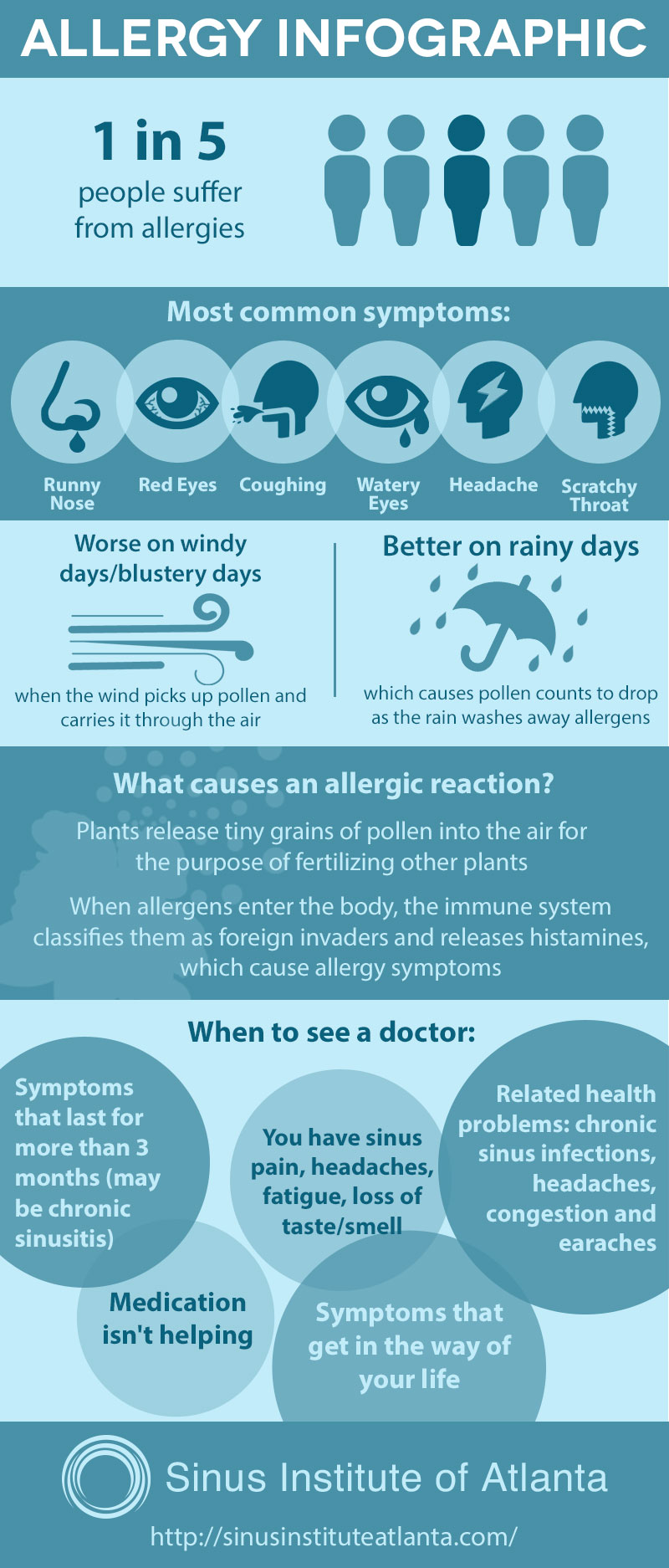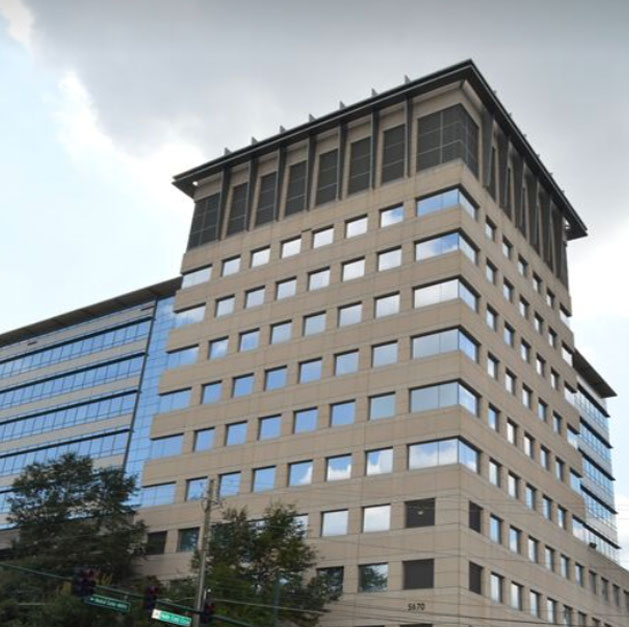Atlanta Allergy Treatment Experts

The Difference Between Allergies and Sinusitis
When allergens enter our bodies through airways, histamines are released, causing a variety of unpleasant symptoms as an attempt to fight off these foreign substances. Normally, our sinuses allow mucus to drain through the nasal passages, but during allergy season these passages become swollen and inflamed, preventing drainage.
Built-up fluid in the sinuses causes congestion, pain and pressure, and if left untreated, can lead to an infection known as sinusitis. In severe cases, symptoms of sinusitis can last up to 4 months or longer. Knowing whether you have allergies or sinusitis is key to obtaining the treatment your body needs.
When Are My Symptoms Considered Allergies?
Seasonal allergies are typically easy to determine if symptoms begin or worsen at the onset of spring or fall. These allergies are usually caused by pollen and mold spores released from flowering plants, grasses or ragweed. Symptoms of an allergy attack include congestion, clear nasal discharge, sneezing, itchy eyes, watery eyes, or a scratchy throat. Our ENT allergy specialists offer allergy evaluations and treatments, like sublingual immunotherapy (allergy drops). Please contact us if you’re interested in learning more about our allergy services.
When Are My Symptoms Considered Sinusitis?
Symptoms of allergies and sinusitis often overlap. If your symptoms worsen, such as you notice your snot has taken on a consistently yellow, green or grey tint or you begin experiencing great fatigue and pain in the face, you may have developed sinusitis.
In some cases, sinusitis symptoms can last twelve weeks or longer, even if treated with medication, causing prolonged sinus swelling and inflammation. This is referred to as chronic sinusitis and symptoms include frequent sinus headaches, constant congestion, facial pressure and more. Chronic sinusitis impacts overall quality of life, causing you to feel generally lousy all the time. In addition, chronic sinusitis can cause damage to the sinus cavities and bones, requiring invasive surgery. Traditional sinus surgery involves entering the nasal passage and surgically removing shards of bone and tissue to open the blocked sinuses.
However, an outpatient, non-invasive option is now available at our office: Balloon Sinuplasty. This procedure entails inserting a small balloon into the blocked passageways and inflating it to gently expand the opening, maintaining tissue integrity, and providing patients with significant symptom relief. Dr. Sinha is a leader in his field, with more Balloon Sinuplasty experience than any other medical professionals in the area. He is able to provide his chronic sinusitis patients with significant relief from their suffering using this life-changing procedure.
Contact the Sinus Institute of Atlanta today to determine whether your symptoms are allergy-related or sinusitis or if you’re interested in learning more about Balloon Sinuplasty.











